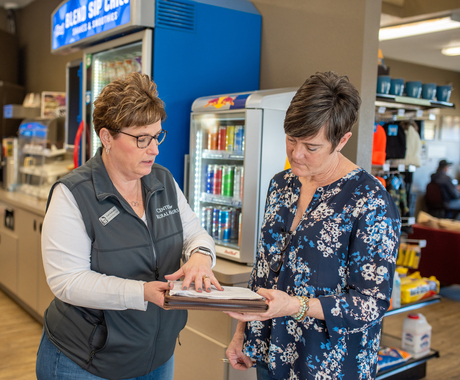By Johnathan Hladik, former policy director
Accurate data is a must if states are going to improve broadband access in rural areas. Due to recent federal legislation, accuracy is also the key to ensuring states receive their full share of federal grant funding.
Soon the Federal Communications Commission (FCC) will determine the amount of money each state is allocated through the Broadband Equity, Access, and Deployment program. Because these decisions are based on the FCC’s new broadband availability map, correcting inaccurate data is more important than ever. Early versions of the map rely on speed and pricing data reported by internet service providers may not reflect the full picture.
The Center for Rural Affairs is urging residents and businesses to challenge the FCC’s new broadband map if they are not receiving service or it’s not at the advertised speed. The deadline is Jan. 13. You can do so by taking the following steps:
- Visit broadbandmap.fcc.gov/home
- Type your address into the Search by Address field. The map will zoom in on your location.
- Review the address and location.
- If they are correct, you're all done with the location assessment.
- If the reported address/location is inaccurate, you can enter a location challenge.
- On the right of the screen will be the reported broadband service providers and maximum connection speeds they offer for sale at your location.
- If the reported services are available, you’re all done with the availability assessment. If the information is inaccurate, you can enter an availability challenge.
In today’s world, having access to the internet has become just as important as any other utility. It is critical to business, farms and ranches, the education of young people and health care services. Please take time to check the accuracy of the FCC’s map to ensure our state will get its proper allotment of funding.





